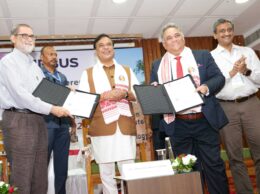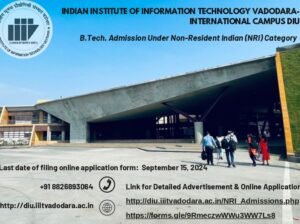Itanagar : In a landmark move, the Government of Arunachal Pradesh, in the 8th Arunachal Pradesh Legislative Assembly’s Budget Session, presented the Financial Budget for the year 2024-25 today, placing a significant emphasis on the triad of education, tourism, and connectivity. The budget, presented by Deputy Chief Minister and Minister of Finance, Shri Chowna Mein, is designed to drive socio-economic development and foster a vibrant future for the state.
EDUCATION: The education sector stands as the cornerstone of this year’s budget, with an allocation of ₹2139 crore under the Arun SHRI Mission. This record-breaking budget reflects the government’s determination to create a robust and inclusive educational infrastructure. Key initiatives include the establishment of 30 new Government Higher Secondary and Senior Secondary Schools, alongside the construction of residential quarters for teaching staff throughout Arunachal Pradesh. The focus extends to higher education with significant investments in infrastructure development for two engineering colleges, two model degree colleges, and the Bini Yanga Government Women College. Additionally, the development of a university auditorium and grant-in-aid for Arunachal Pradesh University, Pasighat, underscore the government’s dedication to elevating academic standards.
The budget also introduces innovative scholarship programs aimed at empowering students and promoting higher education. The Dulari Kaniya Scheme, offering ₹50,000 to girl children pursuing graduation or professional courses, exemplifies this commitment. Moreover, a 100% fee waiver for students enrolled in undergraduate courses at IIT, along with a 75% waiver on training fees for those pursuing commercial pilot licenses, highlights the government’s focus on skill development and academic excellence.
In line with the National Education Policy 2020, the budget emphasizes teacher training and comprehensive school programs. Initiatives such as the 100 Days Reading Campaign, School Readiness Program, and Saturday co-curricular activities under Bagless Saturday aim to create a holistic learning environment. Technological integration is also a priority, with plans to establish real-time digital inventories for public infrastructure in schools and hospitals and promote STEM education across educational institutions of the state.
TOURISM: Tourism, another pivotal sector, has been allocated ₹150 crore, underscoring the state’s efforts to display its unique cultural and natural heritage. The budget outlines plan to develop iconic treks and trails in each district, enhance ecotourism potential, and organize prestigious events like the Femina Miss India Grand Finale. The New Tourism Policy is inclusive of Film Tourism and Healing and Wellness Tourism further highlights the state’s strategic approach to promoting tourism.
To support these initiatives, the budget includes the development of state-of-the-art infrastructure for adventure sports and hill stations. The government plans to conduct outreach events nationwide, partner with national and global hospitality aggregators, and certify local guides to elevate the tourism experience. Additionally, a Homestay Owners Convention will be held to promote best practices and foster community engagement in tourism.
CONNECTIVITY: Connectivity, a crucial enabler of the education and tourism sectors, is also a major focus of the budget. With achievements like the construction of 13,000 km of roads under the RWD initiative, the budget aims to improve accessibility and integration across the state. This includes the construction of a two-lane approach and internal road at Government Engineering College, Tezu, and the provision of teachers’ quarters to improve educational access in rural areas.
During the Question Hour, crucial questions were addressed regarding the state’s education system. Responding to MLA Shri Kumar Waii’s concerns about low enrolment rates and poor teacher-student ratios in village schools, Hon’ble Education Minister acknowledged the issues and outlined the government’s initiative-taking measures and plans. Schools with extremely low or zero enrolment will be closed, and inter-village residential schools will be established to provide a conducive learning environment. The minister committed to leading by example, starting this initiative in his constituency.







